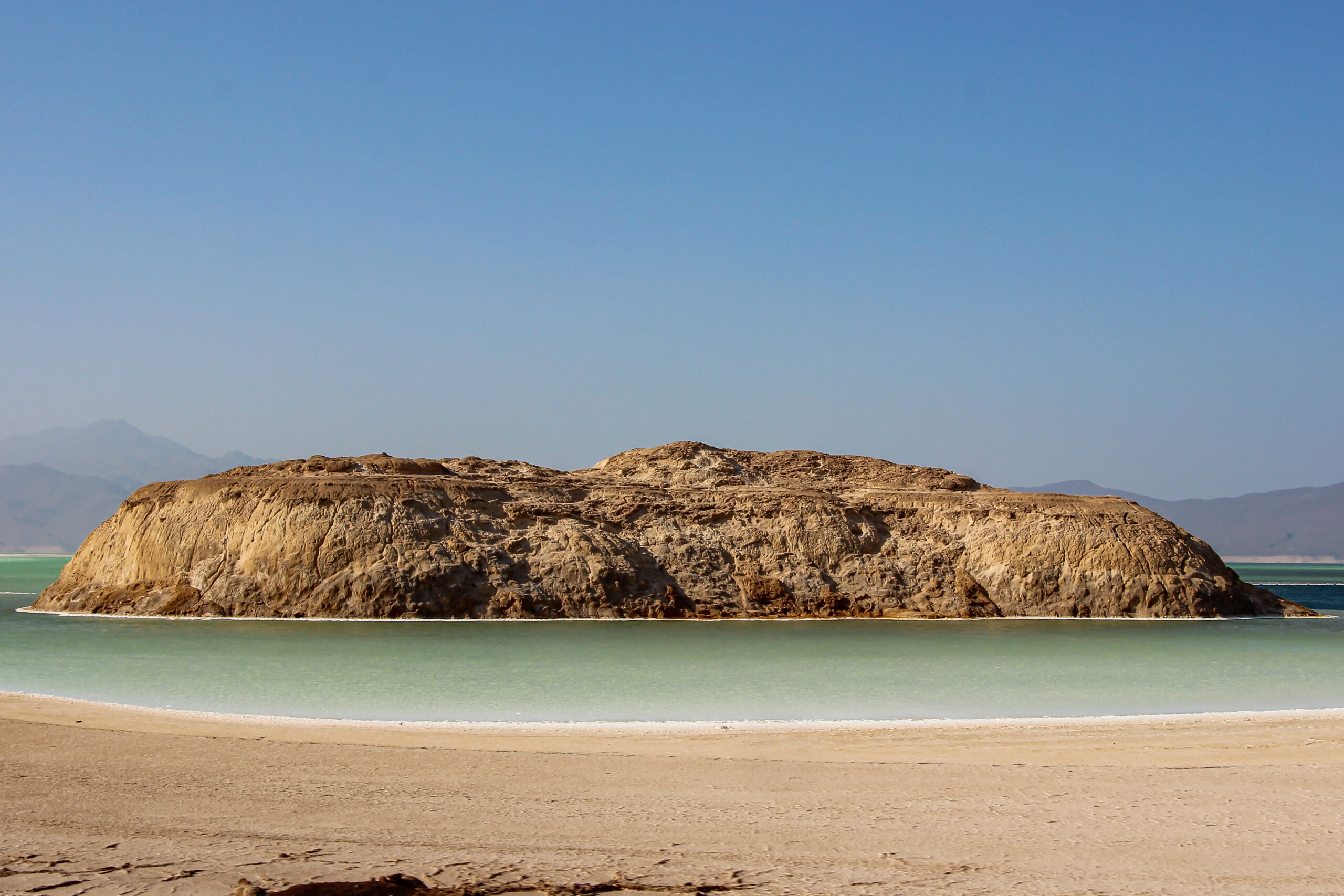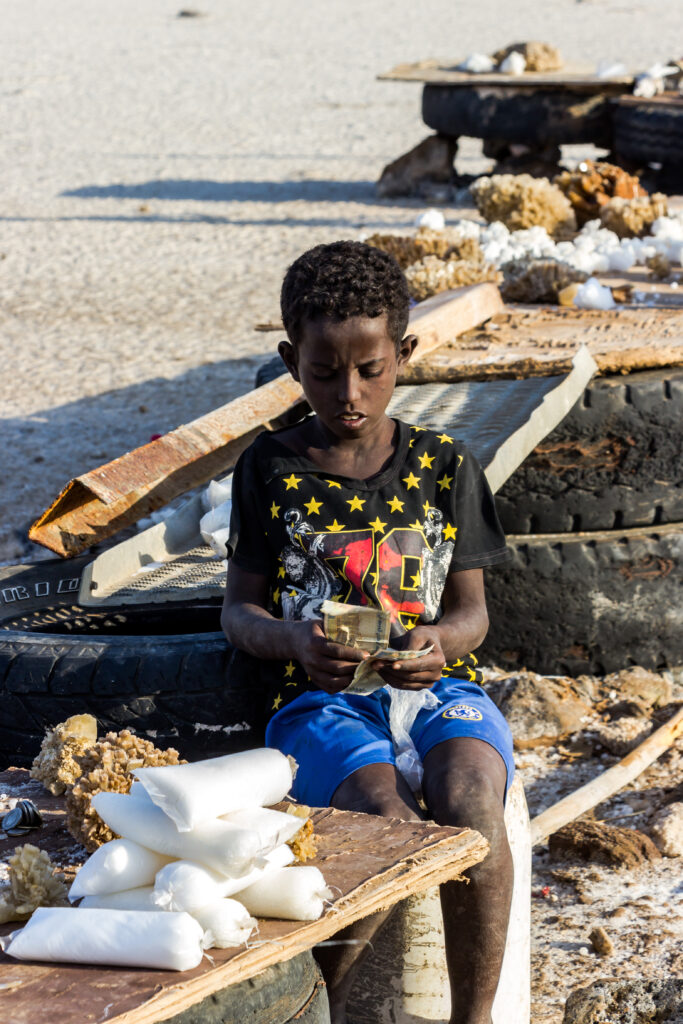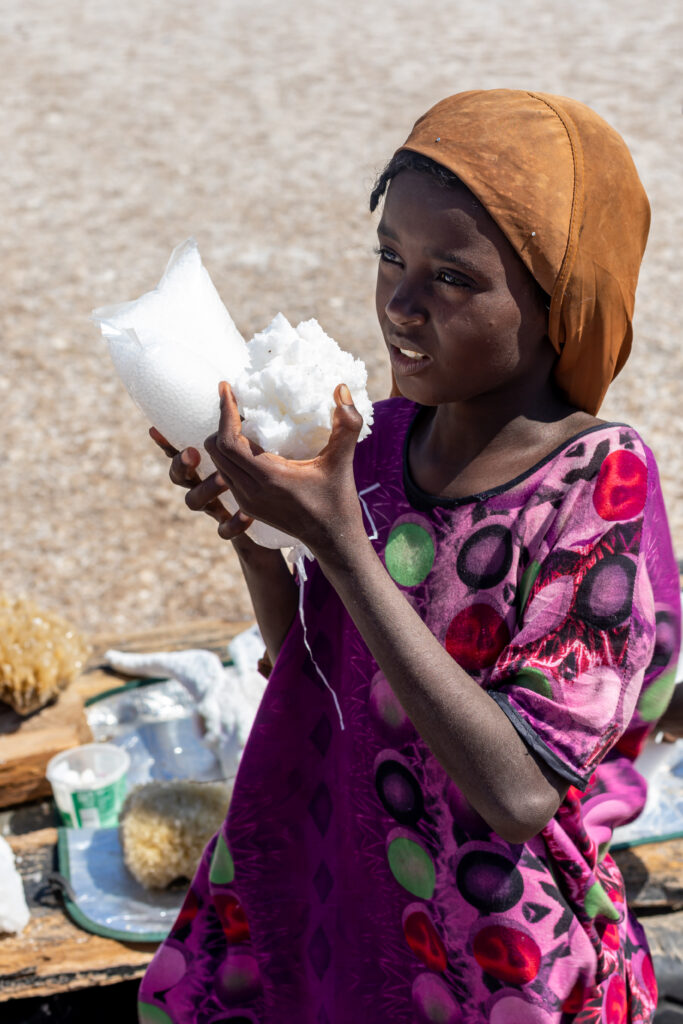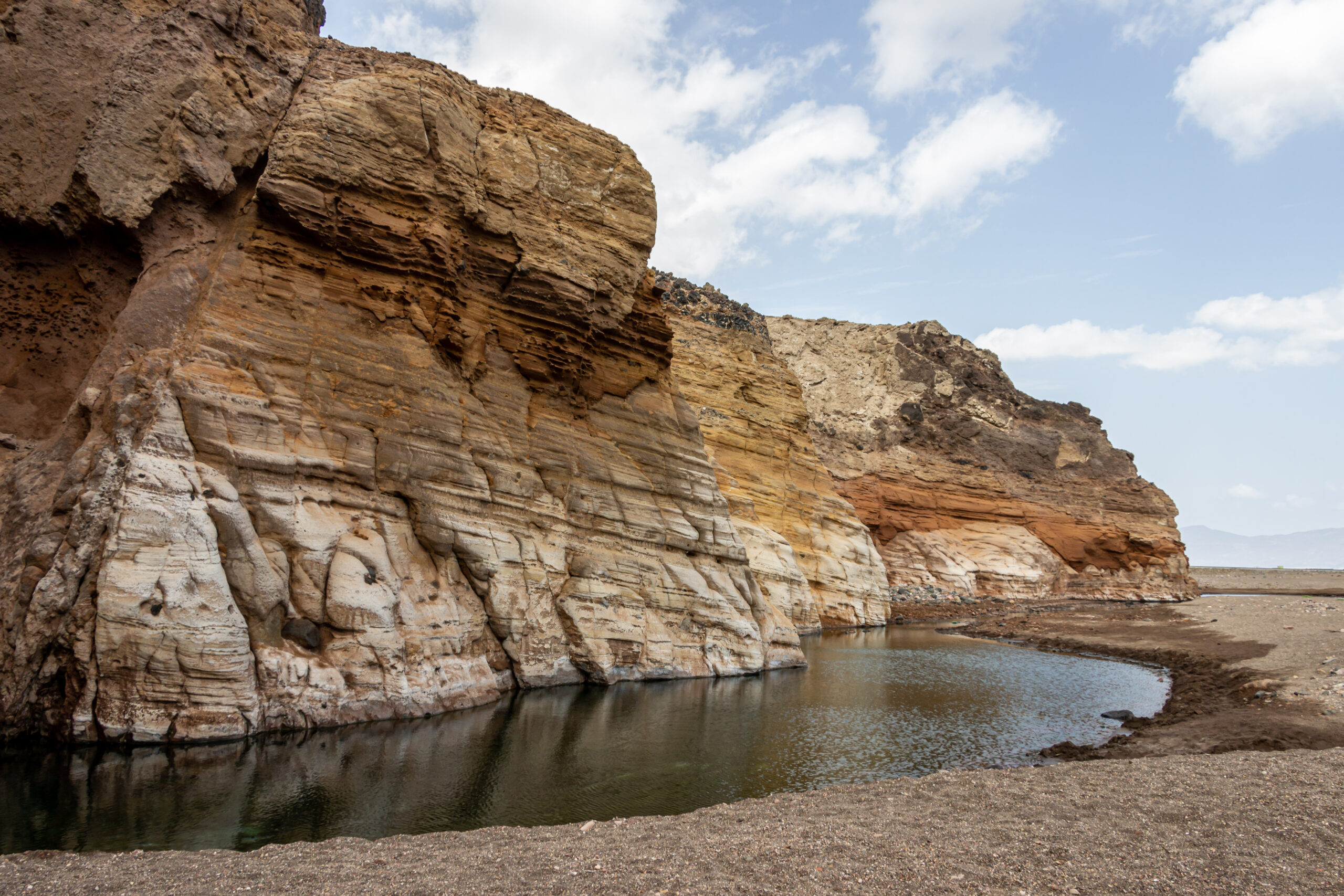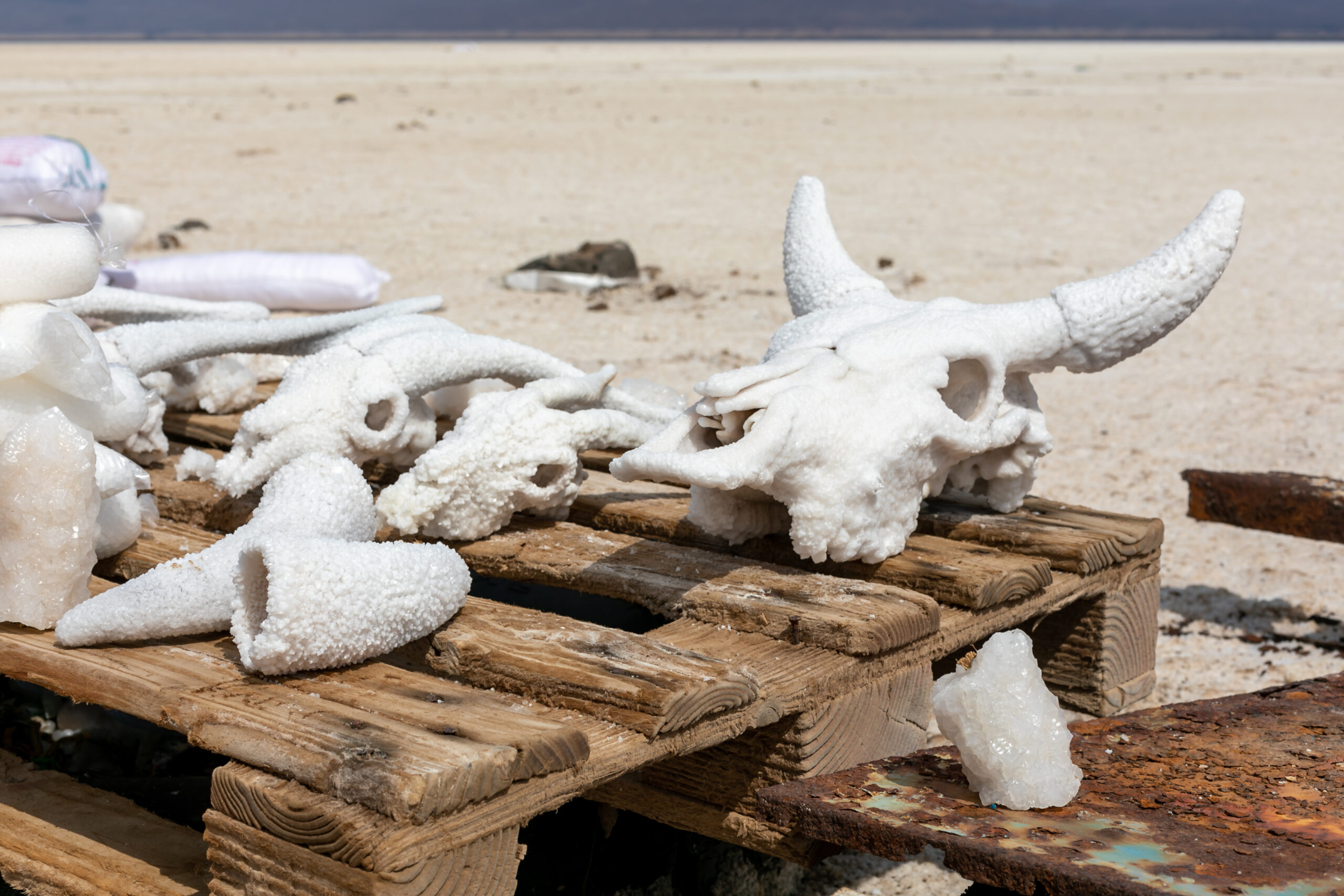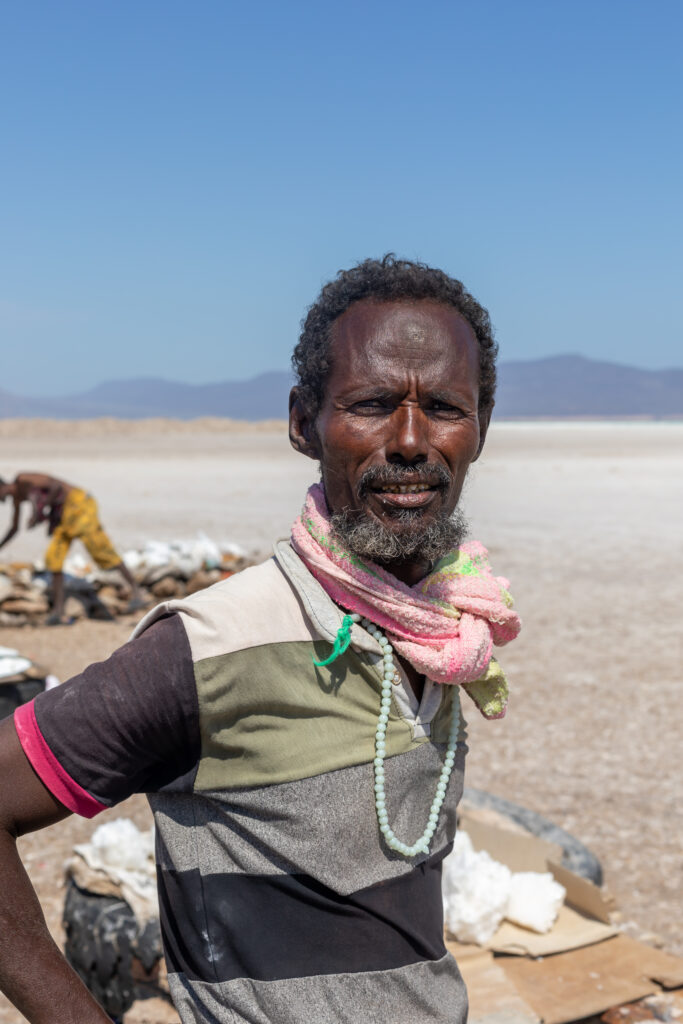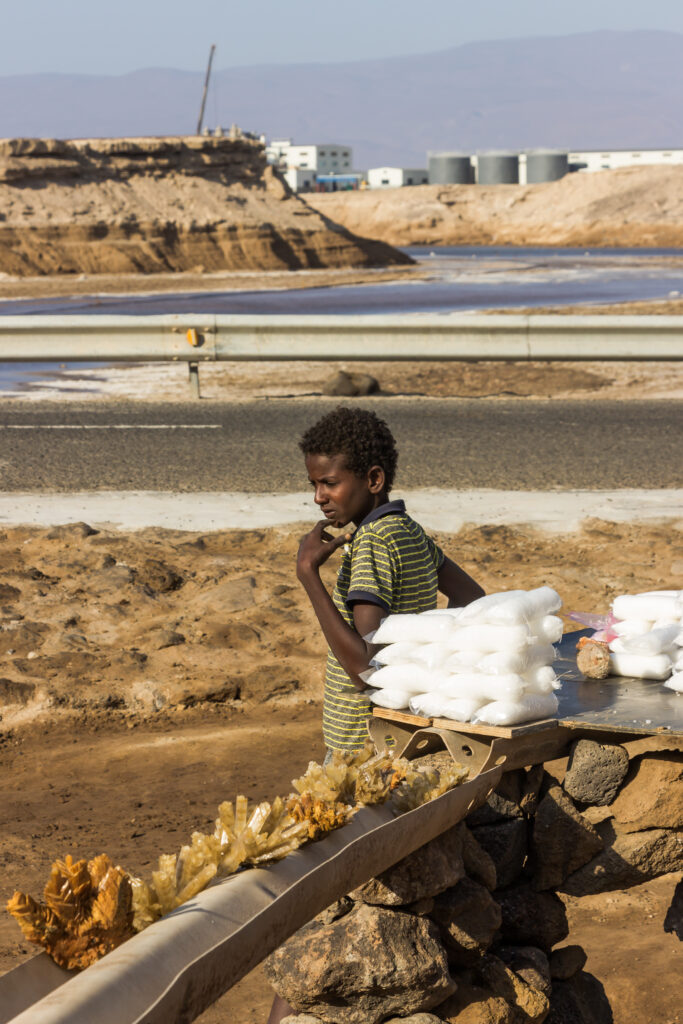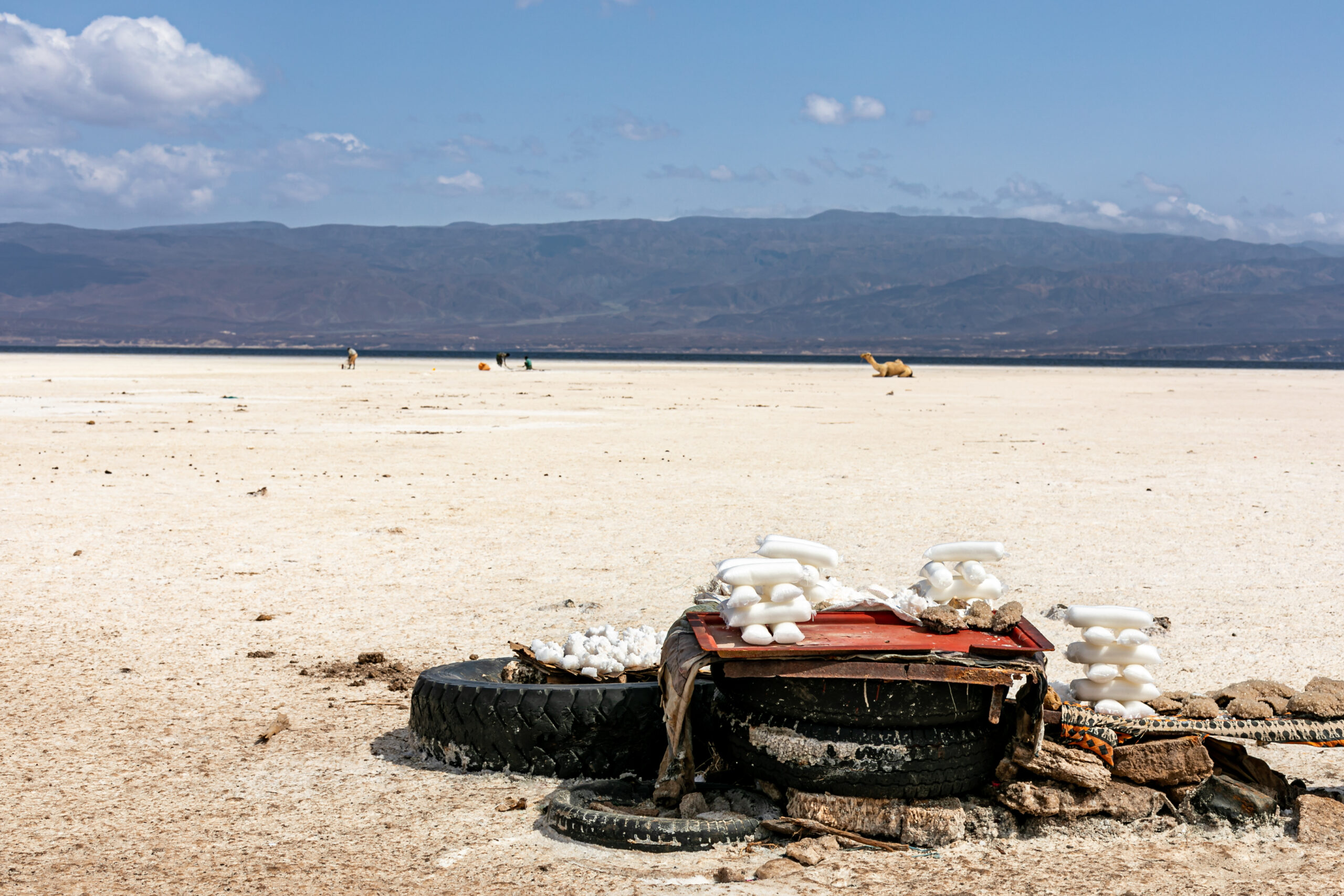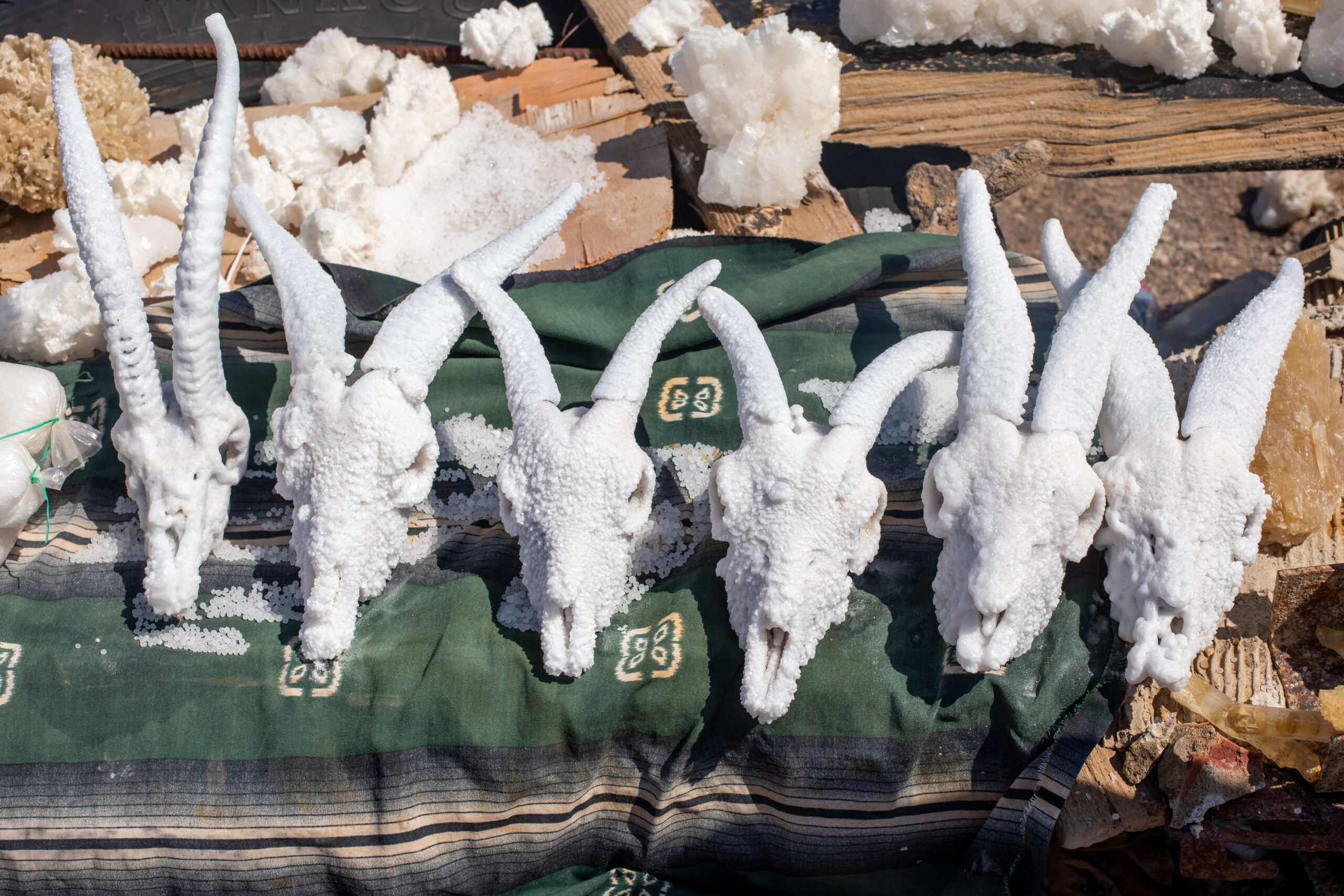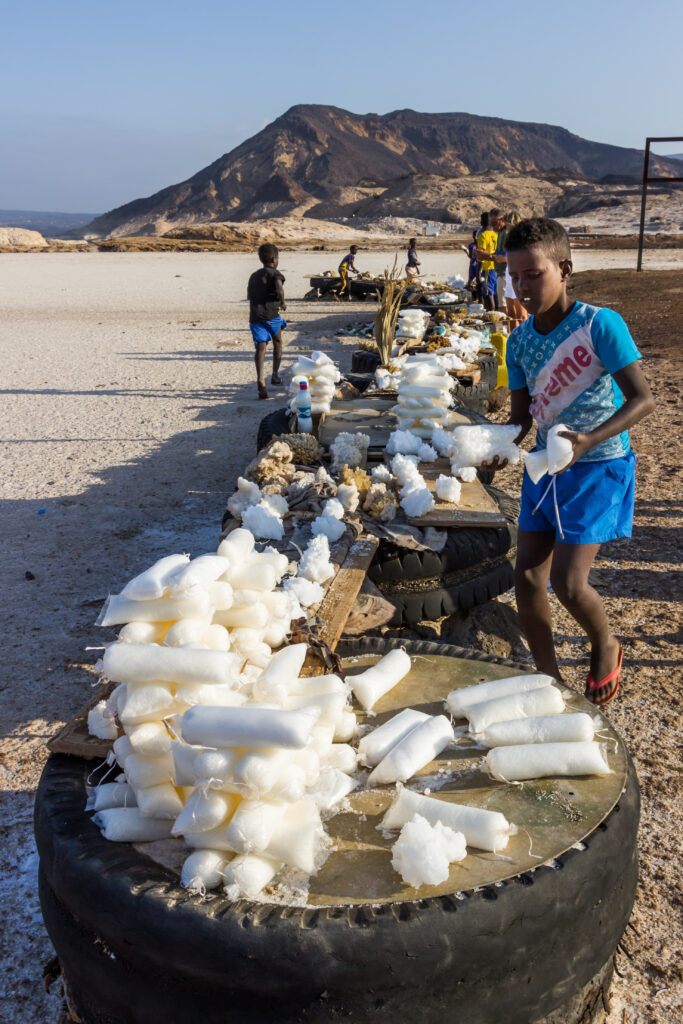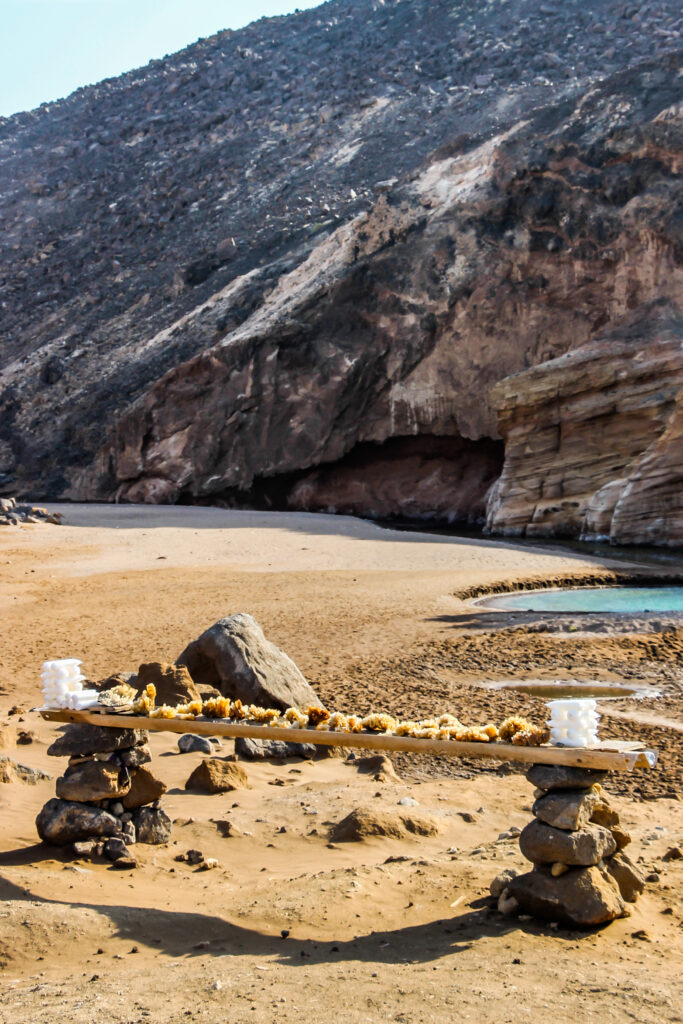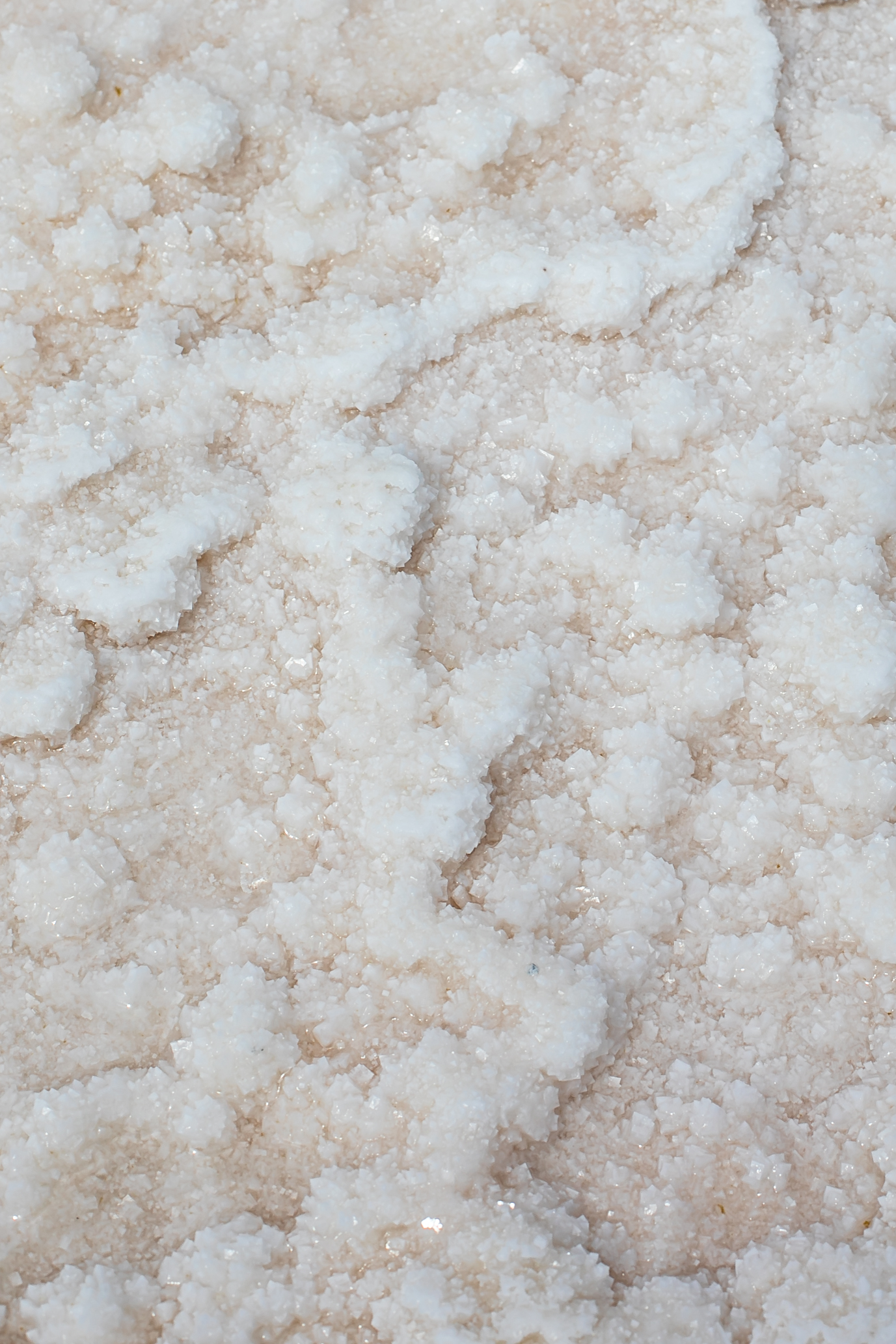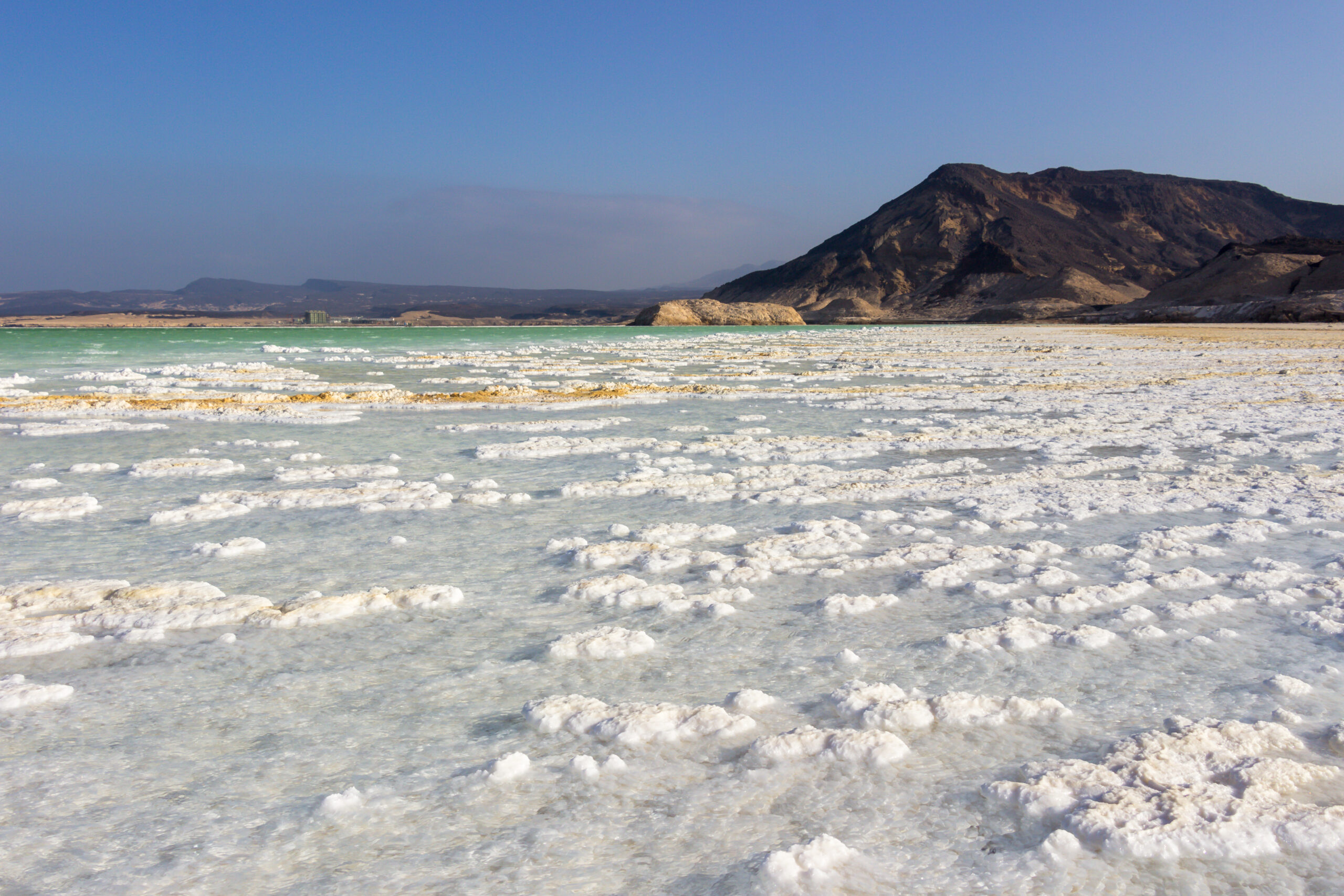
KIDS OF THE SALTED LAKE
Lake Assal is a salt lake located in the center of Djibouti, a country in the Horn of Africa, and is considered the lowest point in Africa. It has a strong tourist potential and as a result, children wait for visitors to sell the products they made themselves, mostly from salt.
Lake Assal is a salt lake located in the center of Djibouti, a country in the Horn of Africa. With an altitude of 153 meters below sea level, it is the lowest point in Africa and is considered the world’s saltiest lake. Lake Assal is a protected area created thanks to the Convention on Biological Diversity in 1995 due to the commercial exploitation of salt which has gone from artisanal production to semi-industrial production.
Lake Assal also has great tourism potential. As a result, every day the inhabitants of the villages around the lake wait for the rare visitors to sell them products that they have made themselves; children are an integral part of this artisanal trade, from the creation of objects to their sale.
Even though child labor is prohibited by law, children often engage in different types of work such as agriculture, animal husbandry, or as in this case, artisanal trade in order to be able to provide for their families; in Djibouti, the level of poverty is high.
Salt from Lake Assal is sold in different forms to satisfy tourists. Most of the products are hand carved objects made from salt, and some minerals.
A bag of salt marbles, which is worth almost nothing to a tourist, can support the child and his family.
Having lived eighteen years in Djibouti, I continue to return every year and take the opportunity to go to Lake Assal to bring back some local objects; for as long as I can remember, children are there with their stands, trying to sell as many products as possible.
